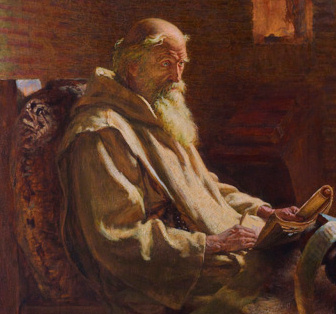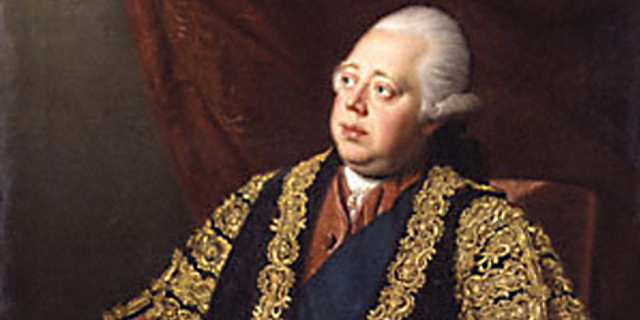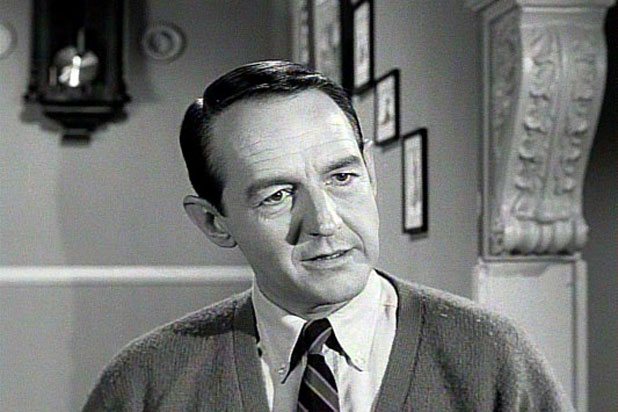In America, as possibly you are aware, there is a regular post of mistake-clerk, whose duty it is to receive in the neck anything that happens to be coming along when customers make complaints. He is hauled into the presence of the foaming customer, cursed, and sacked. The customer goes away appeased. The mistake-clerk, if the harangue has been unusually energetic, applies for a rise of salary.
(from Psmith in the City, by Sir Pelham Wodehouse)
Random thoughts from a largely-useless man. Old radio shows, old movies, the simple life.
Wednesday, February 28, 2018
Tuesday, February 27, 2018
A little tipsy
A merchant in a moth-eaten bowler started warbling to a certain extent with me. It was all very trying for a man of culture. He was a man who had, I should say, discovered that alcohol was a food long before the doctors found it out. A good chap, possibly, but a little boisterous in his manner.
(from Psmith in the City, by Sir Pelham Wodehouse)
(from Psmith in the City, by Sir Pelham Wodehouse)
Monday, February 26, 2018
A leisurely stroll
"And now," said Psmith, rising, "it might be as well, perhaps, to return to the bank and resume our commercial duties. I don't know how long you are supposed to be allowed for your little trips to and from this post-office, but, seeing that the distance is about thirty yards, I should say at a venture not more than half an hour."
(from Psmith in the City, by Sir Pelham Wodehouse)
(from Psmith in the City, by Sir Pelham Wodehouse)
Sunday, February 25, 2018
Not much of a room
"It's a nice room," said the pantomime dame. Which was a black lie. It was not a nice room. It never had been a nice room. And it did not seem at all probably that it ever would be a nice room. But it looked cheap. That was the great thing. Nobody could have the assurance to charge much for a room like that. A landlady with a conscience might even have gone to the length of paying people some small sum by way of compensation to them for sleeping in it.
(from Psmith in the City, by Sir Pelham Wodehouse)
(from Psmith in the City, by Sir Pelham Wodehouse)
Saturday, February 24, 2018
Strange preventative for a strange habit
Croton oil is a powerful laxative. During World War II, the Navy added small amounts of the substance to the neutral grain alcohol which powered torpedoes. This was intended to prevent the sailors from drinking the fuel. However, the resourceful sailors devised stills to separate the alcohol from the fuel.
Friday, February 23, 2018
Patty Duke was an irritating character
If you have ever seen episodes of The Patty Duke Show, you will know that the character that she played was utterly self-centered, self-indulgent and manipulative, in addition to being very fast and loose with the truth. And yet her parents indulge her on ever side, and she is somehow made to appear to be a "normal" teenager. Well, maybe so if that is the way parents let their children be; but no parent who would let his children be like that would be a good parent, in my book.
Thursday, February 22, 2018
The Vikings were mean folks
If we may judge from name and deed, their ferocity was unbounded. Erik Blood-Ax, Harold Bluetooth, and Thorkill the Skull-Splitter were some of their names; and they were worthy of them. They made a business of war, and on select occasions worked themselves into frenzies of rage, howled like wild wolves, and gnashed their teeth on their iron swords. They took the greatest delight in these psychopathic fits.
(from A History of England and the British Empire. What the book has described is the word "beserk.")
(from A History of England and the British Empire. What the book has described is the word "beserk.")
Wednesday, February 21, 2018
The Venerable Bede
Most of us (hopefully) remember this name from our history classes in school. (If we recall nothing that he did, we may remember the adjective which was generally connected to his name.) Evidently we owe a great deal to what we know of early European years to the writings of Bede.
"The feature which makes Bede's history really distinctive, however, in spite of some of his yarns, is the spirit of research, which led him to track down the story of things as they really happened, either from documents or from the participants. In his thoroughness Bede would put to shame many a modern historian." (from A History of England and the British Empire)

"The feature which makes Bede's history really distinctive, however, in spite of some of his yarns, is the spirit of research, which led him to track down the story of things as they really happened, either from documents or from the participants. In his thoroughness Bede would put to shame many a modern historian." (from A History of England and the British Empire)

Tuesday, February 20, 2018
Theology in haircuts
In A History of England and the British Empire, we learn that one of the controversies between the Celtic monks and those sent from Rome was in the style of their haircuts. Evidently the Celts shaved their hair from ear to ear instead of in a circle on top of the head. That ought to have engendered many a fruitful hour of discussion!
Monday, February 19, 2018
Whatever happened to Candy Stripers?
In my youth, those young volunteers in the hospital were ubiquitous, and their uniforms made them stand out. I haven't seen one in years.


Sunday, February 18, 2018
A standard stunt
There is no telling how many times in old movies someone walked into a room with a man sitting at a desk with a vacant look in his eyes; and then, when he was nudged he fell over on his face on the desk, revealing a knife lodged in his back. They just about wore out that trick, but it always worked.
Saturday, February 17, 2018
A very apt tribute to General Washington
He was not a brilliant strategist or tactician, not a gifted orator, not an intellectual. At several crucial moments he had shown marked indecisiveness. He had made serious mistakes in judgment. But experience had been his great teacher from boyhood, and in this his greatest test, he learned steadily from experience. Above all, Washington never forgot what was at stake, and he never gave up.
(from 1776, by David McCullough)
(from 1776, by David McCullough)
Friday, February 16, 2018
A startling discovery
To Charles Willson Peale, walking among [the American soldiers in Washington's army] by the light of the next morning on the Pennsylvania shore, they looked as wretched as any man he had ever seen. One had almost no clothes. "He was in an old dirty blanket jacket, his beard long, and his face so full of sores that he could not clean it." So "disfigured" was he that Peale failed at first to recognize the man was his own brother, James Peale, who had been with a Maryland unit as part of the rear guard.
(from 1776, by David McCullough)
(from 1776, by David McCullough)
Thursday, February 15, 2018
They fought purely for money
During the time he had been held prisoner [by the British] side, Lord Stirling had heard Hessian officers remark that they had never considered it their duty to inquire which of the two sides in the American controversy was right.
(from 1776, by David McCullough)
(from 1776, by David McCullough)
Wednesday, February 14, 2018
Heroic effort
Glover's men proved as crucial as the change in the wind. In a feat of extraordinary seamanship, at the helm and manning oars hour after hour, they negotiated the river's swift, contrary currents in boats so loaded with troops and supplies, horses and cannon, that the water was often but inches below the gunnels - and all in pitch dark, with no running lights. Few men ever had so much riding on their skill, or were under such pressure, or performed so superbly.
[From 1776, by David McCullough. This is an account of the heroic Massachusetts fishermen and sailors, commanded by John Glover, who transported the bulk of the American army away from the site of the Battle of Long Island before the British could again attack.]

[From 1776, by David McCullough. This is an account of the heroic Massachusetts fishermen and sailors, commanded by John Glover, who transported the bulk of the American army away from the site of the Battle of Long Island before the British could again attack.]

Tuesday, February 13, 2018
What men endured
The following day, Thursday, August 29, the storm continued, heavy rains fell. Troops without tents also had little or no food. Fires were nearly impossible to keep going for cooking or warmth. Private Martin got by with biscuits he had had the foresight to stuff into his knapsack before leaving New York, biscuits "hard enough to break the teeth of a rat," as he wrote. Anyone who had a bit of raw pork to gnaw felt privileged. Nearly all were hungry and soaked to the skin. In places in the trenches men stood in water up to their waists. Muskets and cartridges were almost impossible to keep dry. Soldiers, unable to stay awake any longer, feel asleep standing upright in the rain or sitting without cover in the mud.
(from 1776, by David McCullough)
(from 1776, by David McCullough)
Monday, February 12, 2018
Ladies, don't argue, just MOVE!
"For weeks [Henry] Knox had been urging Lucy to leave the city, for her own safety and that of their infant daughter. "My God, may I never experience the like feelings again! They were too much, but I found a way to disguise them, for I scolded like a fury at her for not having gone before."
Ladies, when your husband tells you to do something that is for your safety, don't argue with him. Do it, as quickly as possible.
Ladies, when your husband tells you to do something that is for your safety, don't argue with him. Do it, as quickly as possible.
Sunday, February 11, 2018
How did Dem Bums spell it?
At the start of the Revolutionary War, Brooklyn (New York) was also spelled Bruecklyn, Brucklyn, Broucklyn, Brookland, or Brookline. (per 1776, by David McCullough)
Saturday, February 10, 2018
Freakish resemblance
Sometimes in history, for no genetic reason, we get remarkable resemblances of individuals. Such is the case with big bander leader and actor Kay Kyser and current orchestral conductor Pablo Gonzalez.




Friday, February 09, 2018
They'll do it every time
Old movie fans have no doubt noted that people who are being followed invariable, when they get into a cab, shout the destination before they get in, thereby allowing the other person to hear clearly their destination (and in turn shout, "Follow that cab!") They just as easily could have given the destination in a lower voice after they closed the cab door, and lost virtually no time - but that would not have prevented one of the fun features of the movie. But they almost always shout the destination from the sidewalk.
Thursday, February 08, 2018
Put if off
Patty: Ross, don't you have any homework to do?
Ross: I'm going to follow my usual policy of waiting until the last minute, in case the world comes to a sudden end.
Ross: I'm going to follow my usual policy of waiting until the last minute, in case the world comes to a sudden end.
Lionel Atwill summed them up
Back in the Golden Age of Hollywood, if you wanted an actor to sum up the words "pompous" or "officious," all you had to do was to call Lionel Atwill. He hit them right on the money. I always think it would have been interesting to know if some of these guys were in real life what they appeared on the screen.

Wednesday, February 07, 2018
Quite a task
"Nearly a dozen sleds had crossed [the frozen Hudson River] without mishap, until suddently one of the largest cannons, an 18-pounder, broke through and sank not far from shore, leaving a hold in the ice fourteen feet in diameter. Undaunted, [General Henry] Knox at once set about retrieving the cannon from the bottom of the river, losing a full day in the effort, but at last succeeding."
This was a part of the monumental and heroic task of transporting the cannons that had been captured at Fort Ticonderoga to the Continental Army in Boston.

This was a part of the monumental and heroic task of transporting the cannons that had been captured at Fort Ticonderoga to the Continental Army in Boston.

Tuesday, February 06, 2018
How cold was it?
"If the severity of the winters be such in this climate that the sentinel on shore is frequently found frozen to death upon his post, though relieved every half hour, the reader may frame some idea of what the seamen of a watch, especially in small vessels, must suffer."
(British Admiral Samuel Graves, as quoted in 1776, by David McCullough)
(British Admiral Samuel Graves, as quoted in 1776, by David McCullough)
Monday, February 05, 2018
He just looked the part
"[George Washington] has so much martial dignity in his deportment that you would distinguish him to be a general and a soldier from among 10,000 people. There is not a king in Europe that would not look like a valet de chambre by his side."
(Dr. Benjamin Rush, as quoted in 1776, by David McCullough)
(Dr. Benjamin Rush, as quoted in 1776, by David McCullough)
Sunday, February 04, 2018
Why he spoke extemporaneously
"His intellect and oratorical gifts were second to none. He always spoke spontaneously, never from notes or a prepared text. Fox, it would be observed, would as soon write down what he was going to say as pay a bill before it came due."
(from 1776, concerning Charles James Fox, British politician)

(from 1776, concerning Charles James Fox, British politician)

Saturday, February 03, 2018
What a description!
"His large, nearsighted eyes and full cheeks giving him the look, as the wit Horace Walpole said, of a blind trumpeter."
(A not-very-flattering description of Frederick, Lord North as given in 1776, by David McCullough)

(A not-very-flattering description of Frederick, Lord North as given in 1776, by David McCullough)

Friday, February 02, 2018
William Schallert - another "typical" father
The 1950s and 1960s saw a group of family-oriented television programs built around the "typical" American family (or at least what Hollywood saw as typical). Leave It To Beaver, Father Knows Best, and the list could go on a while. One of the actors thrust successfully into such a role was William Schallert, who portrayed Martin Lane, the father on The Patty Duke Show.
I hope he was not typical, however, because he raised one of the brattiest kids of that television era - totally self-centered.

I hope he was not typical, however, because he raised one of the brattiest kids of that television era - totally self-centered.

Thursday, February 01, 2018
Doc takes another jab at McGee
"Too bad you're a little too antique for the National Guard, McGee. A little soldierly exercise and a little less bread might knock some of that shortening off Mammy's Little Baby."
Subscribe to:
Comments (Atom)